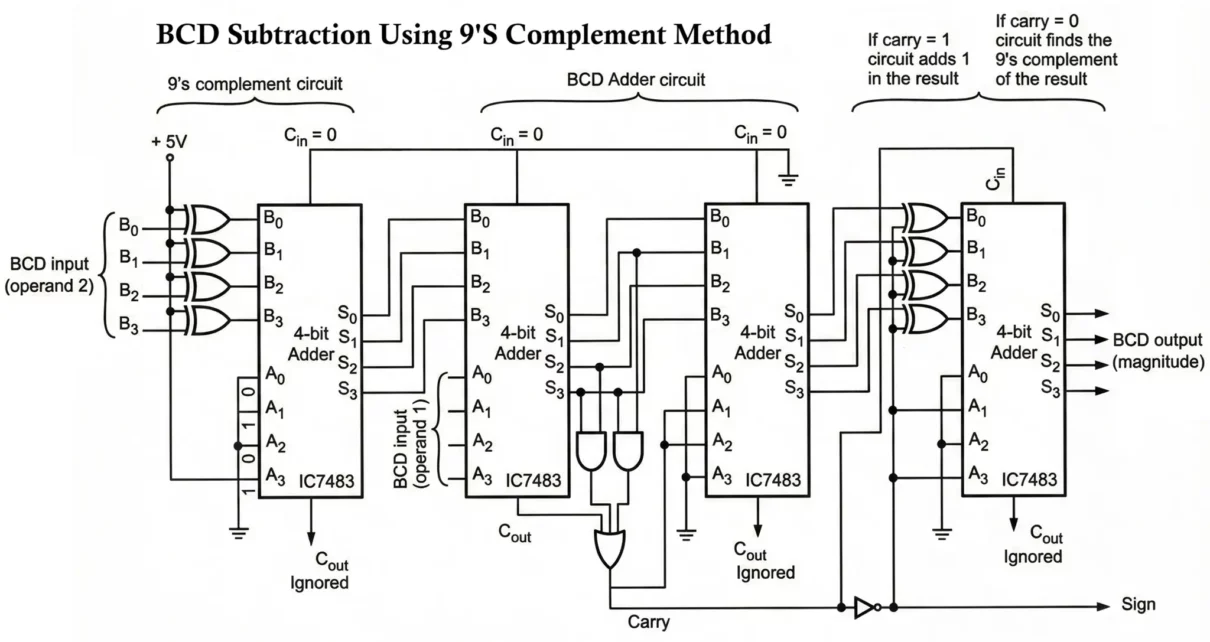Walk into almost any attic, basement, or storage closet and you will find a small museum of forgotten technology. There is usually a clock radio that once woke someone up for work every morning, a cassette player that fueled road trips, or a VCR that still holds a half-finished movie inside. Many of these devices […]
Surface Mount (SMT) vs Through Hole (THT) PCB Assembly Technology
Printed Circuit Board (PCB) assembly is the heart of modern electronic product manufacturing. Two primary methodologies dominate PCB assembly: Surface Mount Technology (SMT) and Through-Hole Technology (THT). Each technology has unique characteristics, advantages, limitations, and ideal use cases. This article presents a detailed, side-by-side examination of SMT and THT, covering fundamentals, process steps, component types, […]
BCD Subtractor Circuit Diagram, Truth Table, Working and Applications
While a BCD adder performs decimal addition using binary hardware with correction logic, a BCD subtractor performs the subtraction of one BCD number from another and produces a valid BCD result. This requires additional logic because simple binary subtraction does not automatically produce valid BCD outputs. Digital systems frequently need to perform arithmetic operations such […]
Run Your Electric Heater Efficiently and Stay Cozy This Winter
When the temperature drops, the first thing most of us do is reach for that thermostat and crank it up. It feels so good at first until the power bill comes and you start wondering if hibernating in a bear cave might be cheaper. The truth is, running your electric heater smartly is totally doable, […]
Designing Electronics for Harsh Kitchen Environments: Heat, Oil, and Moisture
When you pause to consider why your smartphone starts behaving erratically after exposure to bathroom steam, or why an inexpensive kitchen timer fails after spending months near a hot stove, you are touching on one of the most demanding disciplines in electronics engineering: designing systems that can survive in harsh environments. Few environments are as […]
BCD Adder Circuit Diagram, Truth Table, Working and Applications
Let’s explore the BCD Adder Circuit and learn how it adds decimal digits using Binary Coded Decimal (BCD), a digital coding system in which each decimal digit is represented using a 4-bit binary number. BCD arithmetic is widely used in digital systems where calculations must remain in decimal form, such as calculators, clocks, and display-based […]





